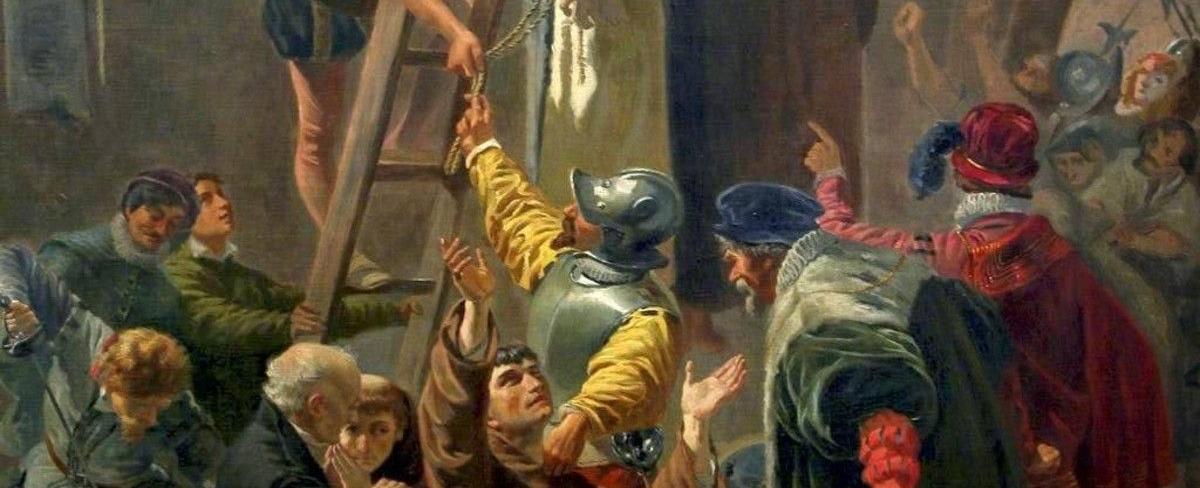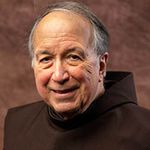Dutch Franciscan Martyrs: Remaining Faithful to Catholic Beliefs

On July 9, Franciscans celebrate the memory of Saints Nicholas Pieck (1534-1572), Willehad, and their 17 companions, martyred during the brutal religious wars that accompanied the Reformation in Europe.
Catholic beliefs challenged
In the Netherlands, at that time ruled by Spain, the population in some areas was increasingly drawn to Protestant beliefs, whereas in others, people tended to remain loyal to inherited Catholic practices. In the northern provinces, where Calvinists were in the majority, an armed resistance against harsh Spanish rule began in 1569, although there were pockets where Catholicism still remained strong.
Franciscans rounded up, imprisoned, abused
In April 1572, a motley armed band of Calvinists, known as the "Sea Beggars," seized the town of Brielle; from there, on June 26, they took the town of Gorkum (today, generally spelled as Gorinchem). There they rounded up the 11 friars of the local Franciscan community, headed by their guardian, Friar Nicholas, as well as four other priests in the town. The friars were thrown into a foul dungeon, where they suffered abusive treatment, several brutally; one of the friars, Willehad, was 90 years old.
Faithful to belief in the Real Presence of Christ in the Eucharist
On July 6, they were shipped to the base at Brielle for official interrogation. There, joined by four more priests seized from the area, the captives were made to enter a disputation with Protestant clergy, being asked to renounce their belief in the Real Presence of Christ in the Eucharist and papal primary. All of them remained faithful to their Catholic beliefs. Nicholas' relatives came to Brielle and offered to ransom him, but Nicholas said he would remain with his brothers.

Although the bodies of the martyrs were buried in a couple of ditches where they were killed, in 1616 their remains were brought to Catholic territory in the Spanish-ruled Netherlands and are presently housed in St. Nicholas Church in Brussels.
Captives beatified, canonized together
Despite the complaint of the magistrates of Gorkum against the friars’ illegal detention and against the directives of the Protestant leader, William of Orange, on July 9 the captives were hung from the rafters of a turf shed. Besides the 11 Franciscans, the group included two Norbertine canons, a Dominican friar, a canon of St. Augustine, and four diocesan priests. They were beatified together in 1675 and canonized in 1867.

The site of the martyrdoms in Brielle is today a meditative garden and place of pilgrimage.
Words of Saint Nicholas Pieck to his companions before hanging:
The hour is now at hand, to receive from the hand of the Lord the long desired reward of the struggle, the crown of eternal happiness.
-----
Main image: The execution of the Dutch martyrs, as depicted at the time of their canonization in 1867 by Cesare Fracassini (Vatican museum).
Dominic Monti, OFM
Professor of Franciscan Research in the Franciscan Institute of St. Bonaventure University
Dominic V. Monti, OFM, is a Franciscan Friar of Holy Name Province (USA) and currently professor of Franciscan Research in the Franciscan Institute of St. Bonaventure University. He devoted the greater part of his ministry to teaching the History of Christianity, in particular the history of the Franciscan movement. He has contributed two volumes to the Works of St. Bonaventure series and is author of Francis & His Brothers, a popular history of the Friars Minor.

